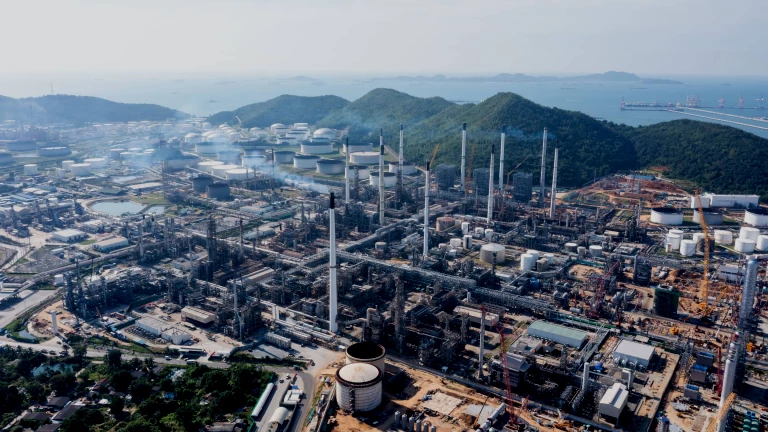
To Inspire Action on Net Zero, Set a Price for Carbon
An internal carbon price that puts a monetary value on emissions is the most effective way for companies to meet their decarbonization goals.

Decarbonization can deliver up to $26 trillion in economic gains by 2030. BCG helps organizations deploy forward-thinking decarbonization solutions that achieve sustainability and boost long-term growth.
Companies are facing intense pressure to remove carbon from their operations, manufacturing, product designs, and supply chains. Government policies, such as the US Inflation Reduction Act of 2022 and the European Green Deal, offer meaningful incentives for large-scale decarbonization—conferring significant advantages for companies that act now, along with the potential for significant green growth.
At BCG, we take a highly sector- and company-specific approach to decarbonization, since each organization’s operating environment, assets, and regulatory constraints are unique. We help companies reduce the carbon intensity of their operations and activities across the full value chain, and we identify new business opportunities that can deliver powerful revenue streams.
We focus on a variety of high-impact decarbonization methods, including:
We also help clients deploy forward-thinking decarbonization methods and低碳解决方案in renewable electricity, distributed energy, energy storage and batteries, carbon removal, green building technologies and renewable heat, green building materials and construction, andnature-based solutions.

A leading steel manufacturer, and one of the fastest-growing companies in the world, committed to deep decarbonization by reducing its CO2emissions by more than 40% by 2030. BCG helped the company eliminate 9 million tons of CO2from a single steel plant, and this successful decarbonization strategy is now being replicated across the entire organization.

An internal carbon price that puts a monetary value on emissions is the most effective way for companies to meet their decarbonization goals.

As countries around the world rebuild their infrastructure for sustainability, private investors are gravitating toward low-carbon hydrogen projects.

Experience curve effects will reduce the cost of carbon capture deployment. But for these projects to happen at scale, policymakers will need to take action.

Carbon transformation, or CO2 to X, is rapidly emerging as an economically viable alternative to fossil fuel-based chemical production. Big companies need to engage.
BCG’s decarbonization consulting team has deep expertise in accelerating the path to net zero decarbonization, deep decarbonization, industrial decarbonization, hydrogen, carbon capture, and biofuels. Here are some of our experts in decarbonization.